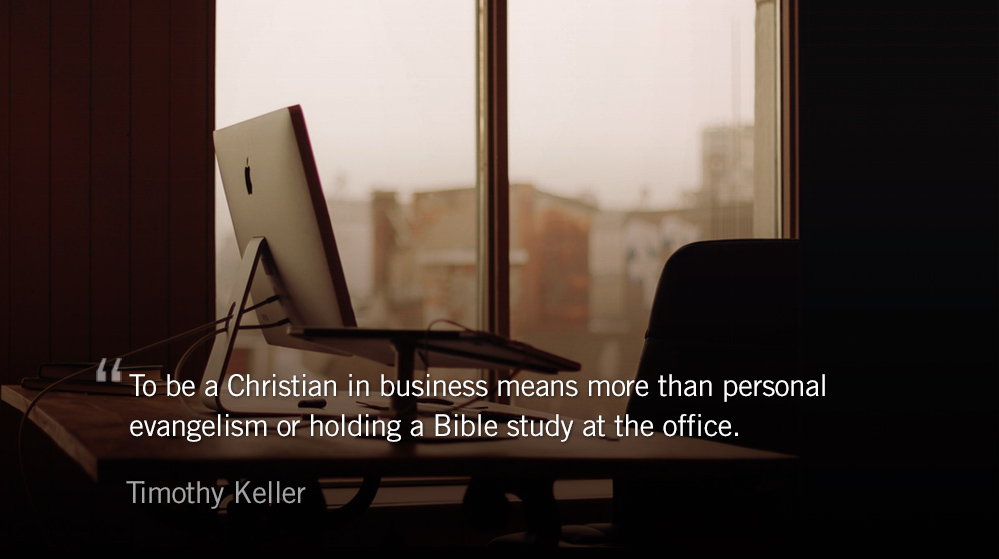*The Summer Reading Series is designed to equip our growing community with curated book recommendations that can shape faith and sharpen cultural insight.
Every Good Endeavor: Connecting Your Work to God’s Work | Summer Reading Series
Excerpt from Chapter Nine: A New Story for Work
The particulars of how the gospel works out in each field are endlessly rich.
What are some of the idols of business, for example? Money and power certainly top the list. But remember that an idol is a good thing that we make into an ultimate thing.
Corporate profits and influence, stewarded wisely, are a healthy means to a good end: They are vital to creating new products to serve customers, giving an adequate return to investors for the use of their money, and paying employees well for their work.
Similarly, individual compensation is an appropriate reward for one’s contributions and is necessary to provide for oneself and one’s family. But it is not our identity, our salvation, or even our source of security and comfort.
The Christian worker or business leader who has experienced God’s grace — who knows “You are not your own; you were bought at a price” (1 Corinthians 6:19–20) is free to honor God, love neighbors, and serve the common good through work.
At one level, this should all seem to go without saying. The idea that businesses should advance the social good has been regaining its proper place in the last decade, helped along by the string of business scandals in recent years.
Yet despite this growing consensus, it is probably fair to say that the implicit assumptions in the marketplace are that making money is the main thing in life, that business is fundamentally about accumulating and wielding power, and that maximizing profit within legal limits is an end in itself.
The reason is that sin runs through the heart of every worker and the culture of every enterprise. The result is polluted rivers, poor service, unjust compensation, entitlement attitudes, dead-end jobs, dehumanizing bureaucracy, backstabbing, and power grabs. This is why it is so important for us to be intentional in applying the counter-narrative of the gospel to business.
To be a Christian in business, then, means much more than just being honest or not sleeping with your coworkers. It even means more than personal evangelism or holding a Bible study at the office. Rather, it means thinking out the implications of the gospel worldview and God’s purposes for your whole work life — and for the whole of the organization under your influence.
Summer Reading Series
Every Good Endeavor: Connecting Your Work to God’s Work
Timothy Keller
Dutton, 2012
Today’s Readings
Joshua 9 (Listen – 3:46)
Psalms 140-141 (Listen – 2:44)
Summer Reading Series
Find devotionals and more reading suggestions on TheParkForum.org.
___________________
FAQs
How can I make a tax-deductible donation? Click here.
How can I get these devotionals in my inbox? Click here.
What is the reading plan this blog is based on? Click here.
___________________________________











